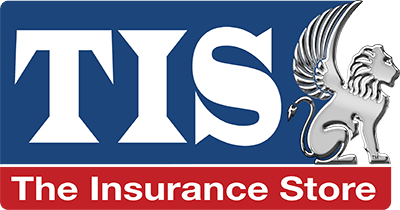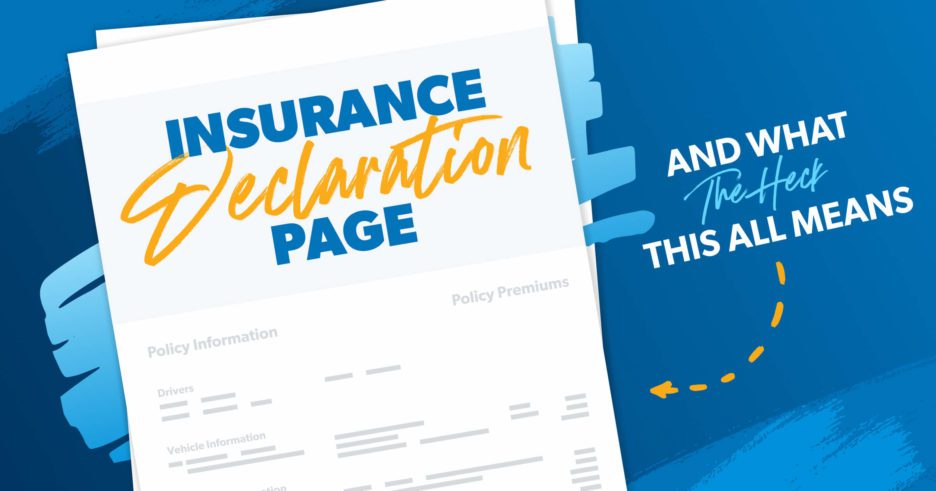One of the most important pages in any insurance policy is commonly referred to as the “declarations page” (or “dec page” for short). There is not always just one, so your “dec page” may actually have multiple pages. Within these key pages, you will find critical information that will let you know if your policy has been written properly and if you are adequately covered. While reading through your entire policy might be a daunting task, as some policies have more than 100 pages, you really should take the time to at least read through your policy declarations. This is especially important at the time you purchase a new policy or right after renewal to check it for accuracy and to verify that you understand the limits of your coverage.
Now before you get too worried about being able to understand everything on your declarations page, keep in mind that it might look more overwhelming to you than it really is. Think of it like a custom egg carton that your carrier has put together to present to you all of the most important “eggs” in your policy. It won’t touch on everything, but what it does cover is the minimum that you should be acquainted with. Let’s go through some of those important eggs now.
Your declarations page should display your policy number and at least the following 6 key pieces of information:
- Who is the “named insured?”
- You will want to make sure your name, company name, and mailing address are correct, so that key notifications from the carrier, such as a billing notification, endorsement, or notice of pending cancellation, will make it to your mailbox.
- What are the “effective dates” of your policy?
- Becoming familiar with the effective dates of your policy will help you know when to prepare for your next renewal and update proofs of coverage to any 3rd parties such as certificate holders, the DMV, your landlord, and especially, your vehicle’s glove box.
- What property, locations, operations, etc. are being covered?
- Your dec page should, in plain terms, itemize what is covered on your policy. If you do not see something that you would expect to find there, such as a vehicle, location, liability-type, or class of business, you can certainly ask your agent “why” it is not there. It does not hurt to be too careful. Your policy is like a special toolbox that needs to be there for you in an emergency, and the “coverages” on your dec page are like the individual tools. The last thing you want is for your toolbox to be missing a tool when you need it most. If there is no coverage on your dec page, your carrier may be telling you there is “no coverage” when you try to submit a claim.
- What are the “limits” of your coverage?
- All of the different items or areas of coverage referred to above should also have a corresponding dollar amount or “limit” assigned to them. These amounts need to be reviewed regularly, as factors like appreciation, depreciation, inflation, new purchases and acquisitions, property sold, certificate requirements, etc. can all affect these sums. Furthermore, many property policies come with something called “coinsurance,” which will penalize you during a claim, even in a partial loss, for carrying limits that do not reflect the “actual cash value” or “replacement cost” of your property.
- What is the “premium?”
- The cost of your coverage is also itemized on your dec page and is called the “premium.” It is good to know what this annual amount is and review it year over year. Many insureds, when shopping for a better premium, focus on what they are paying monthly rather than the annual premium. Differences in the size of the required down payment or the type of installment plan (i.e., number of months a payment is due) can hide the true cost of your policy if you focus on the monthly premium only.
- What is your “deductible?”
- Your “deductible” is the amount of money that the insurance carrier will deduct from what they pay you when settling a claim. All things equal, a policy with a higher deductible will generally be less expensive than policies with a lower deductible.
We have covered some of the most important aspects of your declarations page, but of course, we were not able to go over all the items on every dec page, nor did we address all aspects of a typical policy, including important exclusions. However, by now you should be able to clearly see the value of understanding this important document. Please let us know at The Insurance Store if you ever have any questions about your declarations page or need help with anything else.

